Kevin DeYoung's Blog, page 156
December 13, 2011
Premarital Sex and Our Love Affair with Bad Stats
 Evangelicals love to believe bad things about themselves. And often what they believe about themselves is not true. That's the thesis of Bradley Wright's excellent book Christians Are Hate-Filled Hypocrites…and Other Lies You've Been Told (Bethany House 2010). It's an important thesis to keep in mind when considering a new and frequently cited article from Relevant magazine.
Evangelicals love to believe bad things about themselves. And often what they believe about themselves is not true. That's the thesis of Bradley Wright's excellent book Christians Are Hate-Filled Hypocrites…and Other Lies You've Been Told (Bethany House 2010). It's an important thesis to keep in mind when considering a new and frequently cited article from Relevant magazine.
In the September/October issue you can find Tyler Charles provocative piece entitled "(Almost) Everyone Is Doing It: A Surprising New Study Shows Christians Are Having Premarital Sex and Abortions As Much (or More) Than Non-Christians." The article has been referenced in numerous places on the web (and in pulpits no doubt), especially the opening paragraph:
Eighty percent of young unmarried Christians have had sex. Two-thirds have been sexually active in the last year. Even though, according to a recent Gallup Poll, 76 percent of evangelicals believe sex outside of marriage is morally wrong.
The article goes on to suggest a smattering of action steps in light of these findings, everything from being more realistic about sexual promiscuity, to talking more about why Christians should wait, to doing more to value marriage. Many reading the article will find reasons to be alarmist ("Oh no, Christians are just as bad everyone else!") or smug ("See, Christians are just as bad as everyone else!"). Everyone seems to love stats about bad Christians. Non-Christians like to see that we really are fakes. Christians like to think the sky is falling.
The journalistic approach to such studies is troublesome in itself. When our first instinct is always to play up the "scandal" we not only contribute to the secular impression that Christians are all fakes, we also contribute to our own impression that the Christian life is bound to end in failure. We need to find better ways to motivate toward holiness than utter, shocking shame.
Just as important, we need to examine whether our alarming conclusions can hold up under close scrutiny. We need to ask: are these stats about bad Christians themselves bad stats?
Or to ask the question more clearly: what should we think about the claim that "Christians are having premarital sex and abortions as much (or more) than non-Christians"?
A Closer Look
Let's dig deeper into the numbers of premarital sex. The Relevant article includes a graphic taken from the "National Survey of Reproductive and Contraceptive Knowledge" which shows that 42% of unmarried evangelicals ages 18-29 are currently in a sexual relationship compared to 52% of everyone else. Ten percent of young, unmarried evangelicals have had sex but not in the past year, while 20% have never had sex. The percentages go down to 6% and 12% respectively when looking at the sexual patterns of all other unmarried 18-29 year-olds.
The National Survey can be found in a report called "The Fog Zone" published by The National Campaign to Prevent Teen and Unwanted Pregnancy. The specific chart cited in the Relevant piece can be found here.
There are several reasons we should be cautious about touting the 80% statistic and even more cautious about revamping our ministries around it.
For starters, it's worth noting that the study was conducted by the pro-abortion Guttmacher Institute which has deep and historic ties to Planned Parenthood. There is every incentive, then, for this study to find that almost everyone is having sex and is in need of contraceptives (or abortion rights). Conversely, there is no incentive to present their findings in a way that make evangelicals look good.
Moreover, if you look at the "Survey Methodology" in Appendix 1 you will see that the study intentionally over-represented African Americans and Hispanics. In the 2010 census whites made up 63.7% of the U.S. population, blacks 12.2%, and Hispanics 16.3%. Yet, in the study cited by Relevant (and others) whites account for 50% of the sample, blacks 20%, and Hispanics 22%. Given the fact that 24% of white children are in single-parent homes, compared to 67% for African American children and 40% for Hispanic children, the disproportionate sampling in the National Survey likely has the effect of skewing the numbers toward indicating greater promiscuity.
We should also take into account the large number of persons who refused to take the survey. According to page 10 of this report over 100,000 phone calls were made to get a sample size of 1800. At least 12-15% of those "missed" surveys were refusals. Could it be that many sexually inactive young singles were uninterested in taking a survey almost entirely about contraceptives?
The Case for Less Credulity
Statistics like the 80% need to be taken with a generous grain of salt. I don't doubt that fornication is a big problem, bigger than most pastors realize. But when figures like 80% get thrown around we are led to believe (or flat out told) that Christians behave no different than anyone else.
And yet, consider two points.
1. Even using the numbers quoted in Relevant, it's still the case that the percentage of celibate singles is almost twice as high for evangelicals and for everyone else. But that will not make headlines.
2. The National Survey, like most surveys, simply measures those who self-identify as evangelical. As you can see here, Question 80 of the study asks, "Do you consider yourself to be a born-again Christian, evangelical, or fundamentalist?" Only 476 of the 1800 said yes. Of these 476 unmarried 18-29 year-olds, apparently 80% have had sex before (although only 42% say they are currently in a sexual relationship). But we do not know what sort of "evangelicals" these 476 persons are. The next question in the survey (Q81) asks about frequency in attending religious services. It would be interesting to see the percentages of fornication among weekly churchgoers. Still too high no doubt, but probably much lower. As Bradley Wright argues in his book, there is a strong correlation between church attendance and more faithful sexual behavior across the board (Christians Are Hate-Filled Hypocrites, 138-142). There are lots of nominal Christians in this country whose commitment consists of putting on a religious label for a survey. Looking at what people actually believe and examining their actual engagement with the church is a better mechanism for making claims about the rights and wrongs of Christian behavior.
Here's the bottom line: don't believe every stat you read. They are sometimes false and often kind of true, but the real shocking figures are rarely quite as much as meets the eye.
December 12, 2011
Monday Morning Humor
And speaking of Brian Regan, you know you're a big fan when you even find impersonations of him funny.
December 10, 2011
Hell Bent
 And a great sign appeared in heaven: a woman clothed with the sun, with the moon under her feet, and on her head a crown of twelve stars. She was pregnant and was crying out in birth pains and the agony of giving birth. And another sign appeared in heaven: behold, a great red dragon, with seven heads and ten horns, and on his heads seven diadems. His tail swept down a third of the stars of heaven and cast them to the earth. And the dragon stood before the woman who was about to give birth, so that when she bore her child he might devour it. She gave birth to a male child, one who is to rule all the nations with a rod of iron, but her child was caught up to God and to his throne, and the woman fled into the wilderness, where she has a place prepared by God, in which she is to be nourished for 1,260 days. (Revelation 12:1-6)
And a great sign appeared in heaven: a woman clothed with the sun, with the moon under her feet, and on her head a crown of twelve stars. She was pregnant and was crying out in birth pains and the agony of giving birth. And another sign appeared in heaven: behold, a great red dragon, with seven heads and ten horns, and on his heads seven diadems. His tail swept down a third of the stars of heaven and cast them to the earth. And the dragon stood before the woman who was about to give birth, so that when she bore her child he might devour it. She gave birth to a male child, one who is to rule all the nations with a rod of iron, but her child was caught up to God and to his throne, and the woman fled into the wilderness, where she has a place prepared by God, in which she is to be nourished for 1,260 days. (Revelation 12:1-6)
Why do Christians die? Why do churches die? Why do Christians go hungry, endure tragedies, get cancer, and face persecution? Why do pastors fall into great sin and cast shame upon their churches and disgrace upon the gospel?
Why do some churches grow loveless and cold? Why do other churches forsake the truth of Scripture? Why do church members fight among themselves? Why are there so many hypocrites in the church? Why does everything seem to go wrong for good believers even as they try to follow God?
Why do churches tolerate clear moral deviancy and obvious theological error? Why do some churches get bigger and flashier without getting deeper and wiser? Why do other churches get cold and complacent? Why do churches neglect evangelism and missions? Why do Christians horde their resources? Why do churches take their eyes off the cross and give up on preaching?
Why is the church sometimes ridiculed by intellectuals, the media, the government, and the cultural elites? Why are churches still divided by race and ethnicity? Why are many churches still ignorant of the most basic truths of the Bible? Why can't we do church better and be the church more faithfully? Why is it so hard being a Christian?
There are at least four good, biblical answers to these questions.
Number one, God is sovereign. For his own glory and the good of his people, our heavenly Father sends trials and allows for suffering.
Number two, we live in a fallen world. All of creation is groaning as in the pains of childbirth. Things are not the way they are supposed to be and not the way they will be one day.
Number three, human beings are sinners. We hurt each other. We violate God's laws and pay the consequences. We are full of fears, idolatries, adulteries, and self-love that make our lives worse and the lives of those around us.
Those are three good, biblical answers why churches and the Christians struggle and suffer. But there is another reason we sometimes forget.
Number four, the devil hates the gospel and hates all those who love and obey the gospel. The passage above is the literal and symbolic center of the book of Revelation. For eleven chapters the Spirit shows us tempted churches, suffering churches, judgments on the earth, conflict in the world, and the call for God's people to overcome. In chapter 12 the curtain gets pulled back so we can see what is going on behind the scenes. Why all this struggle and suffering? What is behind this war of the worlds? The answer is that the devil is hell bent on destroying the church.
Let us not forget that underneath and behind all the battles in our time is a giant cosmic battle that has been going on for (almost) all time. And, this Christmas season, let us not forget that a child was born to rule the nations with a rod of iron and crush the head of that dastardly dragon.
December 9, 2011
Top Ten Books of 2011
Just a reminder: this is a very subjective list. It is simply a list of the books published in the last year–Christian or non-Christian–that I found most helpful, inspiring, or entertaining. [Note: there are a couple big reference books below that I have not read in their entirety. But they are good and important books so I included them in my lists. I also felt free to include books published at the very end of 2010.]
Honorable Mentions
Tony Reinke, Lit! A Christian Guide to Reading Books (Crossway)
G.K. Beale, A New Testament Biblical Theology (Baker Academic)
Chris Brauns, When the Word Leads Your Pastoral Search (Moody)
David Helm, One to One Bible Reading (Matthias Media)
Top Ten Books of 2011
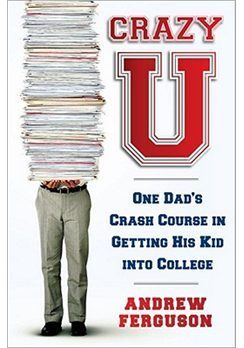 10. Andrew Ferguson, Crazy U: One Dad's Crash Course in Getting His Kid into College (Simon and Schuster). With a breezy style and a knack for turning a phrase, Ferguson explores the madness behind college rankings, the FAFSA application, and the great lengths parents will go to get their children into elite schools.
10. Andrew Ferguson, Crazy U: One Dad's Crash Course in Getting His Kid into College (Simon and Schuster). With a breezy style and a knack for turning a phrase, Ferguson explores the madness behind college rankings, the FAFSA application, and the great lengths parents will go to get their children into elite schools.
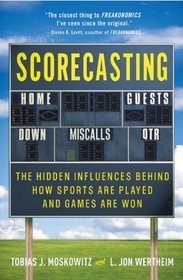 9. Tobias J. Moskowitz and L. Jon Wetheim, Scorecasting: The Hidden Influences Behind How Sports Are Played and Games Are Won (Crown Archetype). A super fun book for people who love sports and love numbers.
9. Tobias J. Moskowitz and L. Jon Wetheim, Scorecasting: The Hidden Influences Behind How Sports Are Played and Games Are Won (Crown Archetype). A super fun book for people who love sports and love numbers.
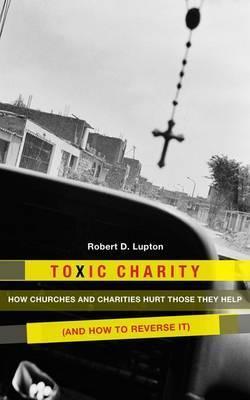 8. Robert Lupton, Toxic Charity: How Churches and Charities Hurt Those They Help (And How to Reverse It) (HarperOne). If you don't care about charity and don't practice it in your life, don't read this book. You could become entrenched in your indifference. But if you are passionate about helping the poor and doing good in your city, this is a must read. Get your deacons, your missions committee, and your mercy ministry advocates to embrace Lupton's six-point "Oath for Compassionate Service."
8. Robert Lupton, Toxic Charity: How Churches and Charities Hurt Those They Help (And How to Reverse It) (HarperOne). If you don't care about charity and don't practice it in your life, don't read this book. You could become entrenched in your indifference. But if you are passionate about helping the poor and doing good in your city, this is a must read. Get your deacons, your missions committee, and your mercy ministry advocates to embrace Lupton's six-point "Oath for Compassionate Service."
7[image error]. Joshua Foer, Moonwalking with Einstein: The Art and Science of Remembering Everything (Penguin Press). A crisply-written journalistic account of what goes into making a memory champion. This is an entertaining book. You'll learn a lot and with some effort may improve your memory. A fascinating story well told. Be on guard for an assumed evolutionary view of the human person and references to (but not lurid descriptions of) lewd behavior.
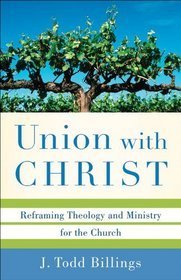 6. J. Todd Billings, Union with Christ: Reframing and Ministry for the Church (Baker Academic). There are two great union with Christ books on this list. This one shows how this neglected doctrine can help us make sense of several current trends, controversies, and mistakes.
6. J. Todd Billings, Union with Christ: Reframing and Ministry for the Church (Baker Academic). There are two great union with Christ books on this list. This one shows how this neglected doctrine can help us make sense of several current trends, controversies, and mistakes.
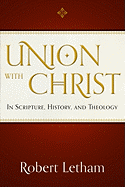 5. Robert Letham, Union with Christ in Scripture, History, and Theology (P&R). At 140 pages of text, this is not a long book, but it is dense. Letham does a masterful job of looking at union with Christ through the three lenses mentioned in the title. Special attention is given to Reformed theologians.
5. Robert Letham, Union with Christ in Scripture, History, and Theology (P&R). At 140 pages of text, this is not a long book, but it is dense. Letham does a masterful job of looking at union with Christ through the three lenses mentioned in the title. Special attention is given to Reformed theologians.
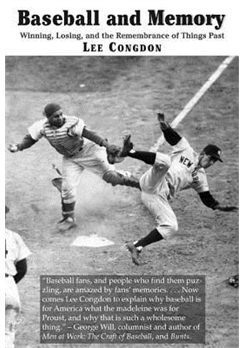 4. Lee Congdon, Baseball and Memory: Winning, Losing, and Remembrance of Things Past (St. Augustine's Press). A book baseball fans will love. Toward the end of the book Congdon waxes philosophical and makes some provocative statements about the role of memory and tradition.
4. Lee Congdon, Baseball and Memory: Winning, Losing, and Remembrance of Things Past (St. Augustine's Press). A book baseball fans will love. Toward the end of the book Congdon waxes philosophical and makes some provocative statements about the role of memory and tradition.
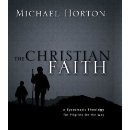 3. Michael Horton, The Christian Faith: A Systematic Theology for Pilgrims on the Way (Zondervan). Horton harnesses his brilliant mind and love for the church to produce this compendium of Reformed theology. This book is definitely more scholarly, more in depth, and more complex than Grudem. Whether that is a plus or minus in your column, you ought to have this book on your shelf. This is the contemporary systematic theology I turn to first when I have a theological question.
3. Michael Horton, The Christian Faith: A Systematic Theology for Pilgrims on the Way (Zondervan). Horton harnesses his brilliant mind and love for the church to produce this compendium of Reformed theology. This book is definitely more scholarly, more in depth, and more complex than Grudem. Whether that is a plus or minus in your column, you ought to have this book on your shelf. This is the contemporary systematic theology I turn to first when I have a theological question.
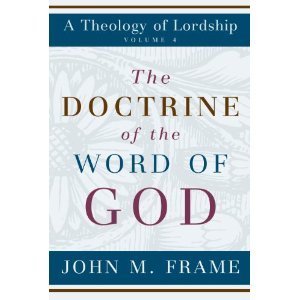 2. John M. Frame, The Doctrine of the Word of God (P&R). I think more people would pick up the book if it didn't include 17 appendices totaling 300 pages. I was also puzzled by Frame's chapter on preaching. But those quibbles notwithstanding, this is a terrific achievement–a powerful, readable, persuasive case for absolute confidence in the Word of God. A tremendously important book for our day.
2. John M. Frame, The Doctrine of the Word of God (P&R). I think more people would pick up the book if it didn't include 17 appendices totaling 300 pages. I was also puzzled by Frame's chapter on preaching. But those quibbles notwithstanding, this is a terrific achievement–a powerful, readable, persuasive case for absolute confidence in the Word of God. A tremendously important book for our day.
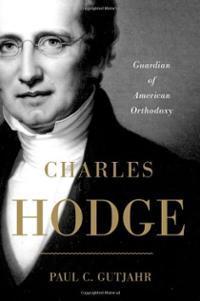 1. Paul C. Gutjahr, Charles Hodge: Guardian of American Orthodoxy (Oxford). You don't have to agree with every jot and tittle of Gutjahr's analysis to find this an inspiring volume. With the author's economical style and scholarly, yet sympathetic approach, I found myself frequently moved by Hodge's faithfulness, discipline, and good cheer. I think I'll be a better pastor, better student of the word, and better Christian for having read this biography of Hodge.
1. Paul C. Gutjahr, Charles Hodge: Guardian of American Orthodoxy (Oxford). You don't have to agree with every jot and tittle of Gutjahr's analysis to find this an inspiring volume. With the author's economical style and scholarly, yet sympathetic approach, I found myself frequently moved by Hodge's faithfulness, discipline, and good cheer. I think I'll be a better pastor, better student of the word, and better Christian for having read this biography of Hodge.
December 8, 2011
Book Blog Grab Bag
As you can tell, I love books. I love to read them and recommend them. I also love to hear what books other people have been reading. Recently, I asked some of my friends to recommend a few books in a couple different categories.
Good "Sacred and Secular" Books
I asked Thabiti Anyabwile, David Platt, and Matt Chandler for (1) a really good Christian book they read in 2011 and would recommend Christians read, and (2) a fun non-Christian book they read this past year.
Thabiti chose Sam Storms' book on election, Chosen for Life. He said, "I'm thinking this is my new favorite to recommend or give away for people thinking through this issue. Chosen for Life is clean, exegetical, weaves in a little history and biography (Arminius, Calvin, and Edwards), and treats Arminianism charitably but critically. Great read." For his other book Thabit is recommended The Help. "The Help was great. Took me back to some things I haven't thought about in a long time."
David decided to bend the rules and pick two books in each category.
On a devotional level, in preparation for an upcoming book on disciple-making, I re-read The Master Plan of Evangelism by Robert Coleman. It's simply one of the most influential books I have ever read, and one that I would recommend any Christian to read. On a more technical level, I was immensely blessed by Daniel Heimbach's True Sexual Morality: Recovering Biblical Standards for a Culture in Crisis. Heimbach's work is a potent, thorough examination of biblical manhood and womanhood that I hope many Christians and especially church leaders will devour.
As for non-Christian books:
On a historical level, I particularly enjoyed a readable, informative, concise, and entertaining biography of Winston Churchill by Paul Johnson entitled Churchill. On a more personal (and pleasurable) level, I read George Will's book from the 90′s (recently reprinted) on baseball called Men at Work: The Craft of Baseball. Mind-boggling to consider how a baseball player has four-tenths of a second to see a small round ball coming toward him at 90-plus miles per hour and decide when, where, and how he wants to hit it.
Matt recommended God, Marriage and Family by Andreas Köstenberger and The Rise of Theodore Roosevelt by Edmund Morris.
Good Books for Political Junkies
With an election year coming up in the U.S. I decided to ask three other friends (with different political persuasions) for books Christians should read as they think about politics.
Collin Hansen mentioned four books:
Michael Gerson and Peter Wehner, City of Man: Religion and Politics in a New Era (Moody, 2010).
Carl F.H. Henry, Uneasy Conscience of Modern Fundamentalism (Eerdman, 2003).
Thomas Sowell, A Conflict of Visions (Basic Books, 2007).
Toward an Evangelical Public Policy: Political Strategies for the Health of the Nation , edited by Diane Knippers and Ron Sider (Baker, 2005).
Carl Trueman highlighted three choices:
Augustine, The City of God
D. G. Hart, From Billy Graham to Sarah Palin (Eerdman, 2011).
Sarah Harper and D. C. Innes, Left, Right and Christ (Russell Media, 2011).
And finally, here are three more recommendations from Sam Storms:
Stephen L. Carter, Integrity (New York: Basic Books, 1996).
Gerald R. McDermott , One Holy and Happy Society: The Public Theology of Jonathan Edwards (University Park, PA: The Pennsylvania State University Press, 1992).
Mark R. Levin , Liberty and Tyranny: A Conservative Manifesto (New York: Threshold Editions, 2009).
Personally, I think Thomas Sowell's Conflict of Visions is singularly helpful in trying to understand the political debates in the West. Sowell is a conservative, but he doesn't take sides in this book. He simply (and clearly) tries to explain how different sides can view the same issues so differently. On economic issues, Ron Sider is a well-respected thoughtful voice from the left worth reading. Michael Novak and Jay Richards would provide a counter-balancing Christian perspective from the right.
December 7, 2011
A Sneak Peak at 2012
I asked several publishers to highlight upcoming books that might appeal to the readers of this blog. I chose three books from each of their recommendations (and a few houses didn't respond). I haven't read these books (except for one or two) so I don't know what is in each one, but from what I can tell these look like some very promising selections.
The write up for each book comes from the publisher.
Thanks to Andrew and Jenny for doing all the hard work in setting up this post.
Baker Books
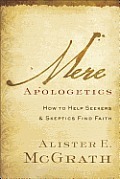 Alister E. McGrath. Mere Apologetics: How to Help Seekers & Skeptics Find Faith (January 2012). Throughout history there have been great and articulate defenders of the faith. But with the new challenges of scientific atheism we see in our day, there is a need for a fresh and flexible approach to apologetics. Rather than supplying the fine detail of every apologetic issue in order to win arguments, Mere Apologetics teaches a method that appeals not only to the mind but also to the heart and the imagination.
Alister E. McGrath. Mere Apologetics: How to Help Seekers & Skeptics Find Faith (January 2012). Throughout history there have been great and articulate defenders of the faith. But with the new challenges of scientific atheism we see in our day, there is a need for a fresh and flexible approach to apologetics. Rather than supplying the fine detail of every apologetic issue in order to win arguments, Mere Apologetics teaches a method that appeals not only to the mind but also to the heart and the imagination.
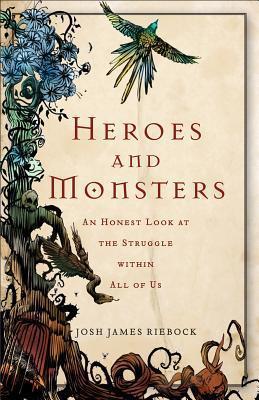 Josh James Riebock. Heroes and Monsters: An Honest Look at the Struggle Within Us All (March 2012). In this stunningly honest, compelling, and ultimately hopeful book, Josh James Riebock explores issues of trust, obedience, intimacy, dreams, grief, purpose, and the unexpected stops along the journey that form us into the people we are. In a creative way, he shows readers that pain and beauty are so inextricably linked that to lose the former costs us the latter.
Josh James Riebock. Heroes and Monsters: An Honest Look at the Struggle Within Us All (March 2012). In this stunningly honest, compelling, and ultimately hopeful book, Josh James Riebock explores issues of trust, obedience, intimacy, dreams, grief, purpose, and the unexpected stops along the journey that form us into the people we are. In a creative way, he shows readers that pain and beauty are so inextricably linked that to lose the former costs us the latter.
 Shawn Lovejoy. The Measure of Our Success: An Impassioned Plea to Pastors (May 2012). In this honest and encouraging book, Shawn Lovejoy calls pastors back to the "main thing"—the call to love people and make disciples—and to measure their success the way God does. Using Scripture, personal examples, and case studies, Lovejoy gently leads pastors back to their first love, and in doing so he leads them toward a more effective and joy-filled ministry.
Shawn Lovejoy. The Measure of Our Success: An Impassioned Plea to Pastors (May 2012). In this honest and encouraging book, Shawn Lovejoy calls pastors back to the "main thing"—the call to love people and make disciples—and to measure their success the way God does. Using Scripture, personal examples, and case studies, Lovejoy gently leads pastors back to their first love, and in doing so he leads them toward a more effective and joy-filled ministry.
Bethany House
 Ted Kluck and Dallas Jahncke. Dallas and the Spitfire: An Old Car, an Ex-Con, and an Unlikely Friendship (April 2012). Ted is a thirty-something father of two who's been going to church his whole life. Dallas is a twenty-one-year-old former cocaine addict who has recently become a Christian. When they agree to meet for "discipleship," they know that chatting over coffee once a week won't cut it—restoring an old Triumph Spitfire is more their speed. Filled with surprises and humor, this is the story of two lives changed, and along the way it gives readers a new model for men's ministry.
Ted Kluck and Dallas Jahncke. Dallas and the Spitfire: An Old Car, an Ex-Con, and an Unlikely Friendship (April 2012). Ted is a thirty-something father of two who's been going to church his whole life. Dallas is a twenty-one-year-old former cocaine addict who has recently become a Christian. When they agree to meet for "discipleship," they know that chatting over coffee once a week won't cut it—restoring an old Triumph Spitfire is more their speed. Filled with surprises and humor, this is the story of two lives changed, and along the way it gives readers a new model for men's ministry.
 Chris Travis. Insignificant: Why You Matter in the Surprising Way God Is Changing the World (August 2012). Chris taught math for two years in a middle school in Harlem that the media considers the most dangerous school in all of New York. Now he is planting a church in another rough area of the city. Through stories of his time teaching and examples from the lives of others, Chris casts a vision of how God has a way of turning things upside down: making the weak strong, the foolish wise, and the insignificant matter.
Chris Travis. Insignificant: Why You Matter in the Surprising Way God Is Changing the World (August 2012). Chris taught math for two years in a middle school in Harlem that the media considers the most dangerous school in all of New York. Now he is planting a church in another rough area of the city. Through stories of his time teaching and examples from the lives of others, Chris casts a vision of how God has a way of turning things upside down: making the weak strong, the foolish wise, and the insignificant matter.
 R. Albert Mohler, Jr. The Conviction to Lead: 25 Principles for Leadership That Matters (Fall 2012). Cultures and organizations do not change without strong leadership. While many leadership books focus on management or administration, the central focus of The Conviction to Lead is on changing minds. Using his own experiences and examples from history, Dr. Mohler demonstrates that real leadership is a transferring of conviction to others, affecting their actions, motivations, intuition, and commitment. This practical guide walks the reader through what a leader needs to know, do, and be in order to affect change.
R. Albert Mohler, Jr. The Conviction to Lead: 25 Principles for Leadership That Matters (Fall 2012). Cultures and organizations do not change without strong leadership. While many leadership books focus on management or administration, the central focus of The Conviction to Lead is on changing minds. Using his own experiences and examples from history, Dr. Mohler demonstrates that real leadership is a transferring of conviction to others, affecting their actions, motivations, intuition, and commitment. This practical guide walks the reader through what a leader needs to know, do, and be in order to affect change.
Crossway
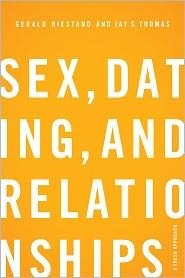 Gerald Hiestand, Jay S. Thomas. Sex, Dating, and Relationships: A Fresh Approach (February 2012). A paradigm-shifting book on purity and relationships that challenges even the basic assumptions of evangelical subculture, Heistand and Thomas equip and engage readers to get serious about honoring Christ with their sexuality.
Gerald Hiestand, Jay S. Thomas. Sex, Dating, and Relationships: A Fresh Approach (February 2012). A paradigm-shifting book on purity and relationships that challenges even the basic assumptions of evangelical subculture, Heistand and Thomas equip and engage readers to get serious about honoring Christ with their sexuality.
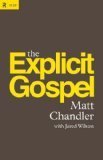 Matt Chandler, with Jared C. Wilson. The Explicit Gospel (April 2012). Few pastors are more gifted than Matt Chandler at reaching both the "overchurched" and the "unchurched" with the gospel. In this, his first book, Chandler insists that we make the gospel—in both its micro and macro aspects—explicit in all that we do.
Matt Chandler, with Jared C. Wilson. The Explicit Gospel (April 2012). Few pastors are more gifted than Matt Chandler at reaching both the "overchurched" and the "unchurched" with the gospel. In this, his first book, Chandler insists that we make the gospel—in both its micro and macro aspects—explicit in all that we do.
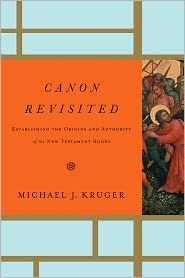 Michael J. Kruger. Canon Revisited: Establishing the Origins and Authority of the New Testament Books (April 2012). Combine popular-level interest in the Gospel of Thomas and Bart Ehrman's Misquoting Jesus, with the current gap in evangelical scholarship on the origins of the New Testament, this book meets a significant need for an up-to-date work on canon by addressing recent developments in the field. The result is an academically rigorous yet accessible study of the New Testament canon that looks deeper than the traditional surveys of councils and creeds, mining the text itself for direction in understanding what the original authors and audiences believed the canon to be.
Michael J. Kruger. Canon Revisited: Establishing the Origins and Authority of the New Testament Books (April 2012). Combine popular-level interest in the Gospel of Thomas and Bart Ehrman's Misquoting Jesus, with the current gap in evangelical scholarship on the origins of the New Testament, this book meets a significant need for an up-to-date work on canon by addressing recent developments in the field. The result is an academically rigorous yet accessible study of the New Testament canon that looks deeper than the traditional surveys of councils and creeds, mining the text itself for direction in understanding what the original authors and audiences believed the canon to be.
David C. Cook
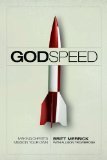 Britt Merrick. Godspeed: Making Christ's Mission Your Own (Summer 2012). There is a discrepancy today between the life of most American Christians and the life of Jesus in the Gospels—and the outside world has noticed. Yet, a growing number of believers feel that something's missing and are aching to live authentic lives like Jesus. Godspeed equips the twenty-first-century Church to join with Christ as He's presently on mission all around them. Jesus said, "As the Father sent me, I also send you" (John 20:21). Godspeed follows this pivotal Scripture to reveal the Father's mandate for mission, the Son's model of mission, and the Spirit's ministry through mission.
Britt Merrick. Godspeed: Making Christ's Mission Your Own (Summer 2012). There is a discrepancy today between the life of most American Christians and the life of Jesus in the Gospels—and the outside world has noticed. Yet, a growing number of believers feel that something's missing and are aching to live authentic lives like Jesus. Godspeed equips the twenty-first-century Church to join with Christ as He's presently on mission all around them. Jesus said, "As the Father sent me, I also send you" (John 20:21). Godspeed follows this pivotal Scripture to reveal the Father's mandate for mission, the Son's model of mission, and the Spirit's ministry through mission.
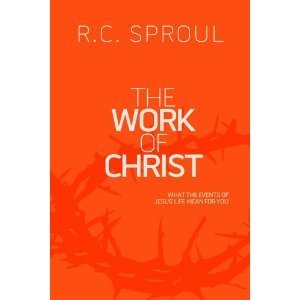 R.C. Sproul. The Work of Christ: What the Events of Jesus' Life Mean for You (Summer 2012). In The Work of Christ, Sproul looks at every aspect of Jesus' life and work, addressing such life-changing topics as: Why Jesus' baptism is relevant for our salvation; The similarities and differences between the temptation of the first Adam and the temptation of Jesus, the "second Adam"; How God uses song to celebrate his redemptive acts; Why the Last Supper marks the beginning of a greater exodus than that of the Old Testament; How Jesus' death and resurrection are grounded in the eternal covenant among the persons of the Trinity; Why Jesus' ascension makes a difference in our lives today; and what we know and don't know about Jesus' return.
R.C. Sproul. The Work of Christ: What the Events of Jesus' Life Mean for You (Summer 2012). In The Work of Christ, Sproul looks at every aspect of Jesus' life and work, addressing such life-changing topics as: Why Jesus' baptism is relevant for our salvation; The similarities and differences between the temptation of the first Adam and the temptation of Jesus, the "second Adam"; How God uses song to celebrate his redemptive acts; Why the Last Supper marks the beginning of a greater exodus than that of the Old Testament; How Jesus' death and resurrection are grounded in the eternal covenant among the persons of the Trinity; Why Jesus' ascension makes a difference in our lives today; and what we know and don't know about Jesus' return.
 James McDonald. Vertical Church: What Every Heart Longs For. What Every Church Can Be (Summer 2012). Church is about God: God's glory, God's Son, God's Word, God's presence. End of discussion. Vertical Church is about a total shift in our thinking. This is where honoring God and adoring His Son and proclaiming His Word and seeking His face are the total focus. Vertical Church is about challenging people, inviting them to something harder, calling them to something deeper, discovering something far better and more authentic. It's a bold call to pastors, church leaders, and motivated disciples to fully embrace the truth that the church is first and last about the glory of God revealed in Jesus Christ.
James McDonald. Vertical Church: What Every Heart Longs For. What Every Church Can Be (Summer 2012). Church is about God: God's glory, God's Son, God's Word, God's presence. End of discussion. Vertical Church is about a total shift in our thinking. This is where honoring God and adoring His Son and proclaiming His Word and seeking His face are the total focus. Vertical Church is about challenging people, inviting them to something harder, calling them to something deeper, discovering something far better and more authentic. It's a bold call to pastors, church leaders, and motivated disciples to fully embrace the truth that the church is first and last about the glory of God revealed in Jesus Christ.
Moody
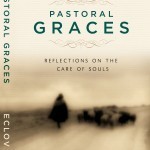 Lee Eclov. Pastoral Graces: Reflections on the Care of Souls (May 2012). When Jesus Christ, the Lord of the church, calls a pastor He instills a kind of heightened instinct for grace; what we call a shepherd's heart. However, pastors often become disoriented by leadership demands, congregational expectations, and the wounds of ministry. They forget how to use the grace of Christ in the everyday work of pastoring. Lee Eclov equips the reader to understand their calling, their equipping, ministering in difficult circumstances and relationships, and how to finish well.
Lee Eclov. Pastoral Graces: Reflections on the Care of Souls (May 2012). When Jesus Christ, the Lord of the church, calls a pastor He instills a kind of heightened instinct for grace; what we call a shepherd's heart. However, pastors often become disoriented by leadership demands, congregational expectations, and the wounds of ministry. They forget how to use the grace of Christ in the everyday work of pastoring. Lee Eclov equips the reader to understand their calling, their equipping, ministering in difficult circumstances and relationships, and how to finish well.
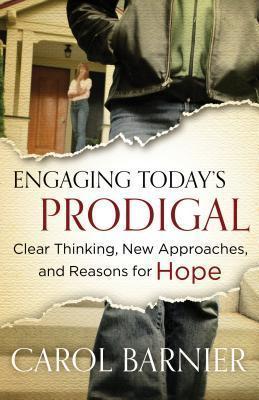 Carol Barnier. Engaging Today's Prodigal: Clear Thinking, New Approaches, and Reasons for Hope (April 2012). Many families today experience the profound guilt and shame-filled pain of seeing a child walk away from their faith and values. Parents and churches often feel powerless to change the relationship and engage the prodigal in positive ways. With wit and humor Carol Barnier equips the reader with a better understanding of a prodigal's motivation, useful responses that won't prevent reconciliation, clear boundaries to protect themselves and other children, and the value of realistic expectations.
Carol Barnier. Engaging Today's Prodigal: Clear Thinking, New Approaches, and Reasons for Hope (April 2012). Many families today experience the profound guilt and shame-filled pain of seeing a child walk away from their faith and values. Parents and churches often feel powerless to change the relationship and engage the prodigal in positive ways. With wit and humor Carol Barnier equips the reader with a better understanding of a prodigal's motivation, useful responses that won't prevent reconciliation, clear boundaries to protect themselves and other children, and the value of realistic expectations.
 Brian Fikkert, Steve Corbett, John Perkins. When Helping Hurts: How to Alleviate Poverty Without Hurting the Poor . . . and Yourself (Updated Edition) (April 2012). An updated edition of the paradigm-shifting book that equips individuals and churches to implement what they have learned about mercy ministry and missions efforts. Focuses particularly on the principle of Asset Based Development with a new foreword from David Platt.
Brian Fikkert, Steve Corbett, John Perkins. When Helping Hurts: How to Alleviate Poverty Without Hurting the Poor . . . and Yourself (Updated Edition) (April 2012). An updated edition of the paradigm-shifting book that equips individuals and churches to implement what they have learned about mercy ministry and missions efforts. Focuses particularly on the principle of Asset Based Development with a new foreword from David Platt.
Thomas Nelson
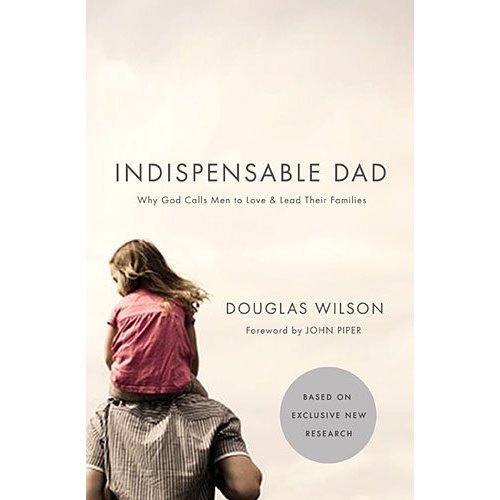 Doug Wilson. Indispensible Dad (May, 2012). This book is a thoughtful and timely excursion into our culture of fatherlessness, what Wilson calls "the central malady of our time." Central because it is the cause of so many of the ills we face—everything from atheism and crime to joyless feminism and paternalistic government expansion—but most important because of the effect it has on families, children, wives, and husbands. Bottom line: when fathers are checked out, left out, or ruled out, it hurts literally everyone.
Doug Wilson. Indispensible Dad (May, 2012). This book is a thoughtful and timely excursion into our culture of fatherlessness, what Wilson calls "the central malady of our time." Central because it is the cause of so many of the ills we face—everything from atheism and crime to joyless feminism and paternalistic government expansion—but most important because of the effect it has on families, children, wives, and husbands. Bottom line: when fathers are checked out, left out, or ruled out, it hurts literally everyone.
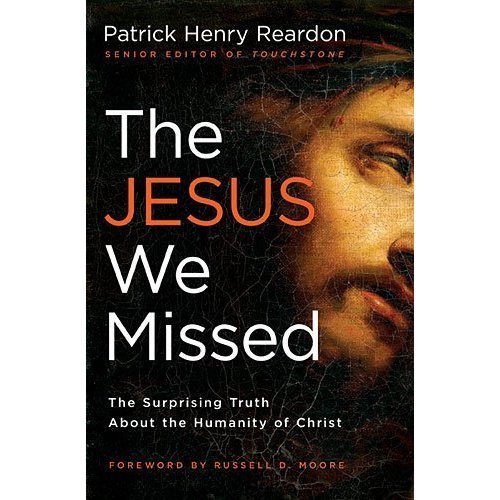 Patrick Henry Reardon (foreword by Russell Moore). The Jesus We Missed: The Surprising Truth About the Humanity of Christ (February 14, 2012). A respected and beloved theologian shows how a renewed appreciation for the humanity of Jesus Christ can better our biblical understanding of the Savior, strengthen our faith, intensify our relationship with him, and give us hope in the darkest hours of our lives. While taking special care not to minimize the Godhood of Christ, Patrick Henry Reardon helps readers come to grips with his real flesh-and-blood humanity—the confession of the Christian church for 2,000 years.
Patrick Henry Reardon (foreword by Russell Moore). The Jesus We Missed: The Surprising Truth About the Humanity of Christ (February 14, 2012). A respected and beloved theologian shows how a renewed appreciation for the humanity of Jesus Christ can better our biblical understanding of the Savior, strengthen our faith, intensify our relationship with him, and give us hope in the darkest hours of our lives. While taking special care not to minimize the Godhood of Christ, Patrick Henry Reardon helps readers come to grips with his real flesh-and-blood humanity—the confession of the Christian church for 2,000 years.
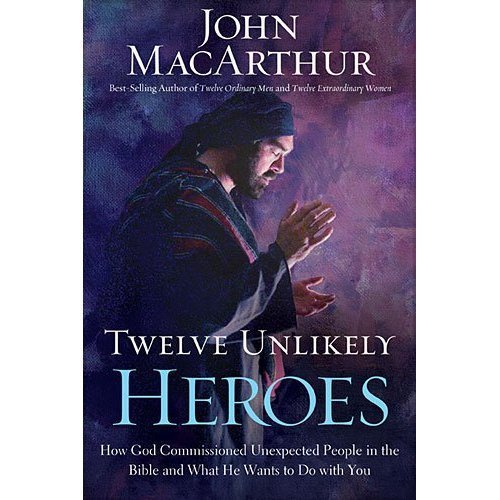 John MacArthur. Twelve Unlikely Heroes: How God Commissioned Unexpected People in the Bible and What He Wants to Do with You (August 7, 2012). In the third installment of the Twelve series, readers discover that true success is measured in terms of obedience, humility, and faithfulness to God. In Twelve Unlikely Heroes readers gain new insights into the kind of people God uses, and what it means to be successful in his eyes. It highlights this wonderful mystery: that God uses weak, foolish, and broken people to showcase his power, wisdom, and love. He works through those who are humble, contrite, and eager to obey. By God's grace and for his glory, ordinary sinners are unexpectedly transformed into heroes of the faith.
John MacArthur. Twelve Unlikely Heroes: How God Commissioned Unexpected People in the Bible and What He Wants to Do with You (August 7, 2012). In the third installment of the Twelve series, readers discover that true success is measured in terms of obedience, humility, and faithfulness to God. In Twelve Unlikely Heroes readers gain new insights into the kind of people God uses, and what it means to be successful in his eyes. It highlights this wonderful mystery: that God uses weak, foolish, and broken people to showcase his power, wisdom, and love. He works through those who are humble, contrite, and eager to obey. By God's grace and for his glory, ordinary sinners are unexpectedly transformed into heroes of the faith.
December 6, 2011
My Favorite Book of the Year
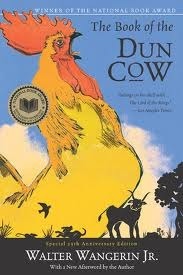 I can't remember ever reading a book quite like The Book of the Dun Cow. Granted, I read ten times more non-fiction than fiction, but I think even fiction aficionados find this story hard to categorize. Walter Wangerin is a gifted writer, but also unique. His style takes some getting used to. But once you read a few chapters on Dun Cow you'll be so curious about where all this is going and what this all means that you'll keep reading.
I can't remember ever reading a book quite like The Book of the Dun Cow. Granted, I read ten times more non-fiction than fiction, but I think even fiction aficionados find this story hard to categorize. Walter Wangerin is a gifted writer, but also unique. His style takes some getting used to. But once you read a few chapters on Dun Cow you'll be so curious about where all this is going and what this all means that you'll keep reading.
The Book of the Dun Cow is about Lord Chauntecleer, the proud and noble leader of the Community of the Meek that lives in and around the rooster's coop. Opposite Chauntecleer (but perhaps similar to him in other ways) is the evil Cockatrice whose wickedness is animated by a supernatural underground monster called Wyrm. Wangerin's story borrows from elements of Chaucer, ancient mythology, and medieval folklore. I don't want to say too much more about the plot because you should experience it fresh for yourself. All I'll say is that you'll be surprised how moved you can be by strange characters like John Wesley Weasel, Mundo Cani Dog, Pertolote the beautiful hen, and the mysterious Dun Cow (dun refers to a brownish-gray color).
This book, which Wangerin is careful to say is not an allegory, did in me what all great stories are meant to accomplish. As I read through the book I found myself wanting to talk to my wife about it. I wanted to dissect it and tell her what I just read (she promises to read it soon). I wanted to experience the book with someone else. More than that, I found myself stirred with compassion for the meek. Alternately, I found myself roused to fight more courageously against evil. I was also provoked to see pride in my own life. And in a curious way I found myself almost moved to tears by the love, gentleness, loyalty, and pain of a chicken, a dog, and a cow.
You'll just have to read the book for yourself to see what I mean.
December 5, 2011
Book Week 2012
I love books. Many of you do too. So last year I decided to devote a week in December to nothing but books. That makes this the second annual book week blog (cue trumpet fanfare). I hope you'll find a couple books you want to read in the coming year and maybe a Christmas idea or two.
Here's what you can expect this week:
Tuesday – My Favorite Book of the Year. Not the best book of 2011, but the book I enjoyed reading most during the past 12 months (other than the Bible of course).
Wednesday – A Sneak Peak at 2012. I asked several Christian publishers to highlight a few new releases they thought readers of my blog would want to know about. I whittled the list down to three books per publisher. Obviously, I haven't read these books yet (with a couple exceptions), so I can't speak to the exact content. But I think you'll agree there are many books to look forward to next year.
Thursday – Book Blog Grab Bag. I asked several friends of mine to provide book recommendations in a few different categories. Come back on Thursday to get recommendations from David Platt, Matt Chandler, and others.
Friday – Top Ten Books of 2011. The best books I've read, Christian or non-Christian, published in 2011 (or the very end of 2010).
Monday Morning Humor…again
December 3, 2011
I Must Be Getting Old
Somewhere in between raising five kids, pastoring a church, and writing sermons I missed this pop culture phenomenon.
I'm still trying to figure out the connection between a futurist world of robot dystopia, hip hop hamsters, and Korean automobiles.



